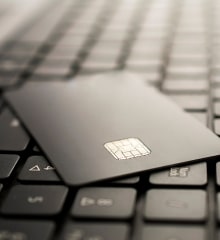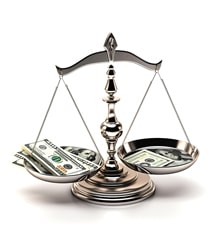Understanding Your Risks and Rights with Credit Card Debt
There is a simple and easy way to understand the difference between secured and unsecured debt.
Secured debt is backed by some type of property, such as a car or house. Defaulting on this type of debt
typically means the forfeiture of the property in question. Unsecured debt is backed simply by a promise of repayment, like student loans or payments
for medical treatment. Because debtors cannot reclaim intangible things like education or physical health, these debts typically involve some leniency
on the part of the creditors.
If you fail to make a repayment on unsecured debt, creditors have a few means at their disposal for recovering the owed amount, including the
following:
-
Contacting you. This is often the first action for creditors attempting to reclaim unsecured debt. It usually entails sending a few
strongly worded letters that threaten more severe consequences if you continue to avoid paying the debt.
-
Filing delinquency with a credit reporting agency. This can damage your credit rating and may have long-term consequences regarding
your ability to obtain loans and credit in the future.
-
Filing a lawsuit. If creditors obtain a judgment by a Georgia state or federal court, it may be possible for them to garnish your
wages or bank accounts — or even attach the debt to your personal property. This would allow creditors to resell your property to recover the
amount owed.
Although the threat of these types of actions is quite serious, many creditors tend to overstate the urgency of repayment. You have options
when it comes to addressing your debt situation. There is credit counseling, debt consolidation or bankruptcy. You will most likely have a
lot of questions about what course of action to take and what the consequences are for each of the options. Contact an experienced
bankruptcy attorney at DebtStoppers in Atlanta. We can do a free debt analysis so that you can see which course
of action makes the most sense for you.


